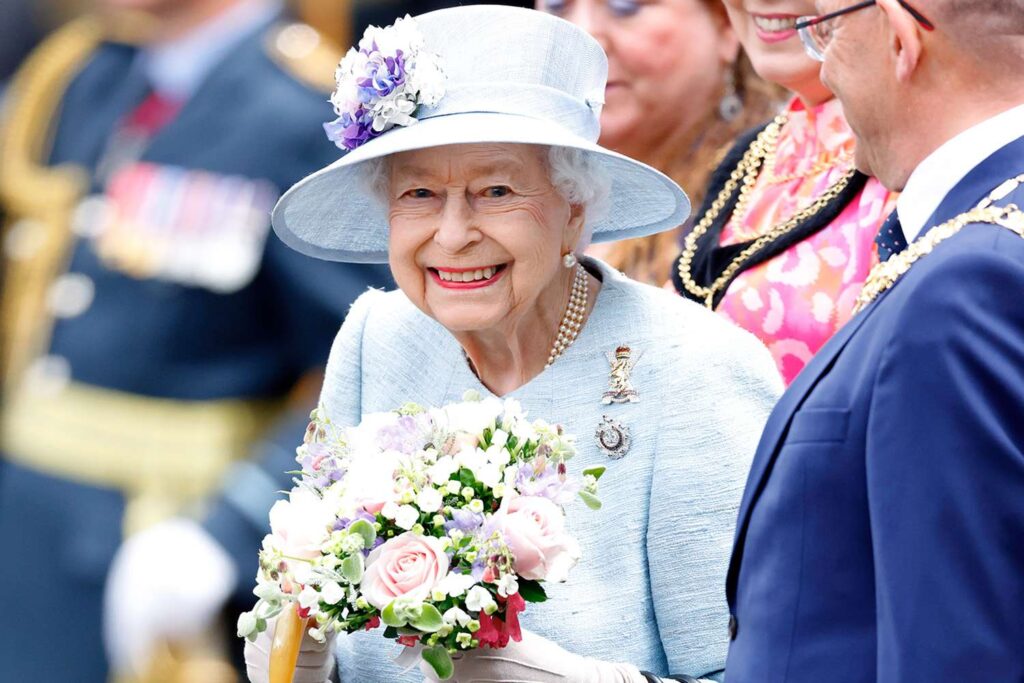Queen Elizabeth II
Queen Elizabeth II: A Reign of Dedication and Resilience

Introduction: Queen Elizabeth II, born Elizabeth Alexandra Mary Windsor on April 21, 1926, in London, England, is the longest-reigning monarch in British history. As the head of state for the United Kingdom and the Commonwealth realms, Queen Elizabeth II has dedicated her life to the service of her nation and has been a symbol of continuity and stability throughout times of change. This biography will explore the life, accomplishments, and significant events that have shaped Queen Elizabeth’s remarkable journey.
Early Life and Education: Elizabeth was the first child of the Duke and Duchess of York, who later became King George VI and Queen Elizabeth (the Queen Mother). Her upbringing was privileged but also marked by the tumultuous period of World War II. At the age of 13, Elizabeth met her future husband, Prince Philip of Greece and Denmark, with whom she formed a deep connection that would endure throughout her life.

As a young princess, Elizabeth received an extensive education in constitutional history, law, and other subjects essential for her future role as queen. Her education prepared her for the responsibilities and challenges that lay ahead, instilling in her a strong sense of duty and service.
Ascension to the Throne: On February 6, 1952, Elizabeth’s father passed away, making her the queen at the age of 25. She assumed the throne as Queen Elizabeth II, vowing to serve her country and her people with unwavering dedication. Her coronation took place on June 2, 1953, at Westminster Abbey, where she was anointed and crowned.
Reign and Modernization: Throughout her reign, Queen Elizabeth II has witnessed significant changes in the political, social, and cultural landscape of the world. She has embraced the role of a constitutional monarch, providing stability and continuity in times of rapid change. The Queen has diligently fulfilled her duties, representing the monarchy both at home and abroad, and maintaining close relationships with the Commonwealth nations.
Despite the monarchy’s evolving role, Queen Elizabeth II has managed to adapt and modernize the institution while preserving its traditions and values. She has embraced technological advancements, such as the use of television and the internet, to communicate with the public and engage with a wider audience.
The Queen’s immense popularity can be attributed to her approachable nature and her ability to connect with people from all walks of life. She has displayed empathy and compassion during times of crisis, visiting disaster-stricken areas and comforting the affected communities. Her annual Christmas broadcasts have become an institution, offering solace and encouragement to millions around the world.
Family and Personal Life: Queen Elizabeth II’s family life has also been closely followed by the public. She married Prince Philip on November 20, 1947, and together they had four children: Prince Charles, Princess Anne, Prince Andrew, and Prince Edward. The Queen’s role as a mother and grandmother has been an essential aspect of her life, and she has strived to balance her duties with her family responsibilities.
Tragedy struck the royal family in 1997 when Princess Diana, the former wife of Prince Charles, died in a car accident. Queen Elizabeth II faced public criticism for her initial response but eventually demonstrated her empathy by acknowledging the nation’s grief and addressing the loss with a heartfelt tribute.

Milestones and Commemorations: Queen Elizabeth II’s reign has been punctuated by numerous milestones and historic events. In 2015, she surpassed Queen Victoria as the longest-reigning monarch in British history. Her Diamond Jubilee in 2012 marked 60 years on the throne, and celebrations were held across the Commonwealth to honor her dedication and service.
In recent years, the Queen celebrated her 90th birthday in 2016, and in 2017, she became the first British monarch to reach the age of 91. These milestones serve as a testament to her remarkable resilience and longevity.
Legacy and Impact: Queen Elizabeth II’s reign has left an indelible mark on the monarchy and the world. Her commitment to duty, unwavering service, and unifying presence have earned her the respect and admiration of people worldwide. She has served as a source of stability during times of political and social change, embodying the values of continuity, tradition, and public service.
As the 21st century unfolds, Queen Elizabeth II continues to fulfill her role as a figurehead, offering guidance and support to the British people and the Commonwealth nations. Her reign has witnessed a transformation in the perception of the monarchy, ensuring its relevance in a modern world.
Queen Elizabeth II’s biography is a tale of dedication, resilience, and unwavering commitment to her role as monarch. Her reign has spanned over seven decades and has seen the world undergo significant transformations. Through it all, she has remained a steadfast and beloved figure, embodying the enduring spirit of the British monarchy. Queen Elizabeth II’s legacy will be one of service, tradition, and grace, inspiring future generations to carry on her remarkable example of leadership and devotion to duty.